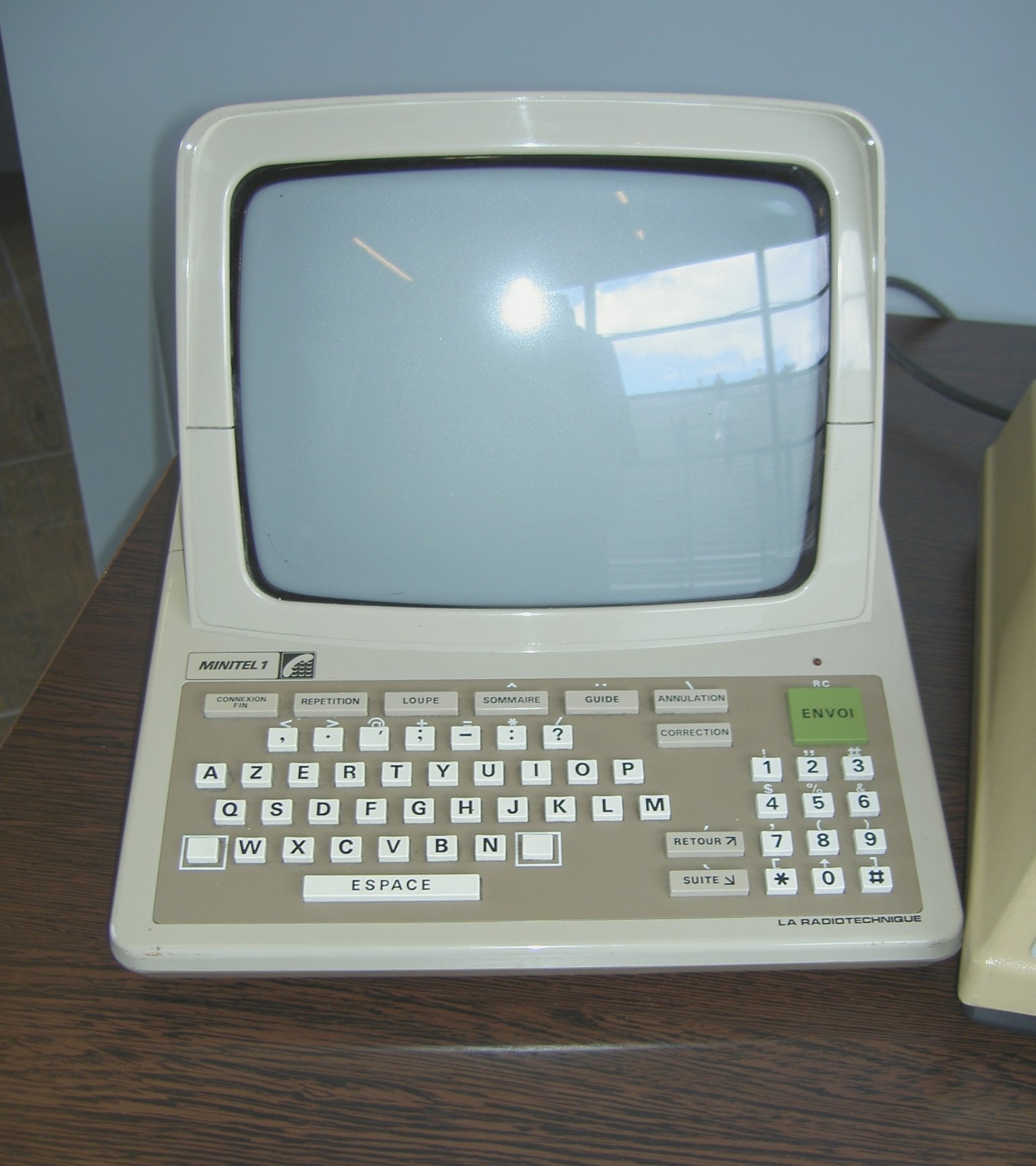- cross-posted to:
- [email protected]
- cross-posted to:
- [email protected]
I think 4G is capable of enough speed, but doesn’t always deliver even close to it. So really the preference would be something that can increase the minimum typical speed more than focus just on maximum speed. Presumably that means good signal range and penetration.
I don’t need wireless 1Gbps around town.
I need reliable 100kbps when I’m out in the boonies.
Fixing coverage gaps is not sexy but is way more useful.
Abso-fucking-lutely, amen and hallelujah. I want 6G to focus on improving range and performance in marginal conditions. When shit is good, 5g is fast enough for now. I don’t know how you improve range and penetration without going to lower frequencies, so maybe we should try to do that? Lower frequencies mean less bandwidth, but RF is black magic fuckery and there’s all kinds of crazy shit that can be done with time division, so maybe we can improve throughout in the sub-ghz regime. I dunno about that, I’m just an idiot software developer who is thankful that shit works without me having to sacrifice a goat.
Maybe there’s a way to broadcast at higher power levels, and maybe there are ways for base stations to be more sensitive or do filtering to increase SNR. I have no idea, but I think that should be what the telecos focus on. Better service over a wider area with the same number of towers would be huge.
They make phones with external antennas, but those are a few thousand dollars, but even a small screw on SMA antenna could extend the range of your phone by a few extra miles / kilometers depending on where you live.
Only if there were affordable options that existed.
I dearly miss my little mag mount antenna for my nokia 5120. Couod make an analog phone call from anywhere in the county. Cant do it today really
I don’t need wireless 1Gbps around town.
Lots of us live in areas with no broadband competition, more options is a good thing. I personally wouldn’t use wireless broadband but if they can bring prices down through competition I’m all for it.
The solution to which is broadband competition.
No, actually the solution is broadband nationalisation.
I like nationalising industries, but here in France, privatizing France Telecom made Internet and phone prices much lower.
Only because it is highly regulated. The FAIs have to allow everyone access to the network. Free wouldn’t exist if it wasn’t for that.
A part is thanks to free (the company) refusing to oligopole up the prices.
True, but nothing was stopping the public company from lowering their prices and improving their service.
You mean in the like nineties?
But how could they fight against the state controlled monopoly making stuff like this !
Jk, fun times actually

That’s just another monopoly. How much do you trust your government?
I pay the cheapest electricity of all of the OECD, and rake in billions every year that is reinvested in society. Thank supply side Jesus for publically owned monopolies.
How’s that competition going with the Texas grid? You people are so fucking brainwashed that you think the shareholders have your best interests at heart.
You rake in billions every year…?
Society does indeed. Hydro Quebec gives back something like $3B a year that is reinvested into various government services.
That too
Yeah, that’s why faster wireless broadband is a good thing. Some people do need 1Gbps wireless in town because they can cut the cord on the overpriced cable. Faster wireless means it’ll hold up under congestion better as well.
Hmmm. I guess.
I have more issues with the fact that I have no usable signal on 1/3 of my commute (closer to 2/3 unusable tuesday-wednesday!) than issues with peak speed.
The R&D money would be better spent laying fibre to phone masts. I suspect it will be spent on dividends instead though ☹️
Edit: unless more research is required to increase users/mast? It’s fine in cities, so I’m assuming it more a bandwidth to the mast issue?
My friend, most base stations got fiber backhaul before 5G even existed. We are well beyond that problem.
In fact, it is not uncommon in 2025 to have fiber fronthaul from the remote radio (at the mast) back to the “cloud” where the actual base station is virtualized and/or software-defined (at the data center).
The usable signal issue is a whole other complex can of electromagnetic worms and in contemporary times is a side effect of how 5G NR is sort of “bolted on” to 4G LTE. It is not dissimilar to the growing pains that mixed 3G/4G networks had.
Do you know what the signal bar on a phone actually represents? My commute has quite a few areas with good (full or almost full) ‘signal’ but with the no internet exclamation mark.
That’s why I have assumed it’s a bandwidth to the mast problem.
Ultimately, phone networks are not built to cope with commuter trains ☹️
Do you know what the signal bar on a phone actually represents?
Thoughts and prayers. It will even lie about the technology in use (e.g. it may display “5G” while connected to a “4G LTE” cell if that cell supports 5G EN-DC, regardless of if the feature is actually in use).
Cities probably have a higher density of towers, or the towers in cities have more capable antennas. Point-to-point microwave links can be pretty damn fast and reliable. They have their limitations, but even low-end systems like some of Ubiquiti’s 60ghz stuff can form full duplex 5Gbps links at 10+ kilometers. Fiber is still king, but I’m guessing the backhaul isn’t the issue.
I’m guessing that the issue is congestion on the client radios. 5g is supposed to be much better at dealing with this thanks to time sharing improvements, but it seems likely that there just aren’t enough towers. One scenario that seems reasonable is that your telco (incorrectly) assumed that they wouldn’t need as many towers when upgrading, so they only upgraded a subset of their towers and removed old ones once 4g was deprecated.
edit: you might be able to get better information about wtf is going on by using a community-sourced site like https://cellmapper.net
I believe you can use that site to get info about how many towers there are and what the client-side congestion is like.
EDIT: ew, cellmapper is closed source. OpenCellid or beaconDB seem to be open source equivalents.
That’s a cool resource. Ty
So far 5G has been slower and less reliable (more random dropped and switched connections) than 4G LTE, and LTE-A was super fast for a bit. The 5G rollout is still ongoing too.
Well they could spend some money on fixing all the fucking
security holesbackdoors that has plagued xG for years, they could increase coverage everywhere, but especially in rural areas, or any other plethora of issues with wireless communication.It’s like fiber rollout. Won’t happen except for the rich neighborhoods meanwhile the telcos take all the money meant to help them roll it out nationwide and spend it on infrastructure except fiber.
I don’t understand the point being made here. The fact we don’t have SSTs sucks, and if they did exist anyone traveling on them would benefit. Who wouldn’t look forward to a significant shorter trip overseas? Faster traveling wouldn’t only benefit executives and world leaders.
Consider a very brief history of airspeed in commercial air travel. Passenger aircraft today fly at around 900 kilometers per hour—and have continued to traverse the skies at the same airspeed range for the past five decades. Although supersonic passenger aircraft found a niche from the 1970s through the early 2000s with the Concorde, commercial supersonic transport is no longer available for the mainstream consumer marketplace today.
To be clear, there may still be niche use cases for many gigabits per second of wireless bandwidth—just as there may still be executives or world leaders who continue to look forward to spanning the globe at supersonic speeds.
just as there may still be executives or world leaders who continue to look forward to spanning the globe at supersonic speeds.
They should stop. Their luxury makes the earth warmer faster for everyone.
Yeah this whole article fell pretty flat with me and this analogy especially. I’d sure as hell like faster air travel and sure, I’m pretty sure I’ll find a use for faster mobile connections too. Agree I’d much rather see better coverage maps with 5G than a speed bump in the select areas where I do get a good 5G connection, but seems likely that eventually there will either be some demand for 6G speeds or it will at least become cheap enough to implement as a marketing tool by telecoms.
I think they were trying to make the point that we HAD faster speeds, but it was discovered that most people didn’t really need it and were happy paying less to go slower. They are comparing this to 6G, sure, some will use it, but for most it will be a needless expense.
On the actual supersonic air travel point - eh, is it really needed considering the massive extra energy required?
Gotta keep you on that upgrade cycle so you eventually have to buy a new phone. $$








